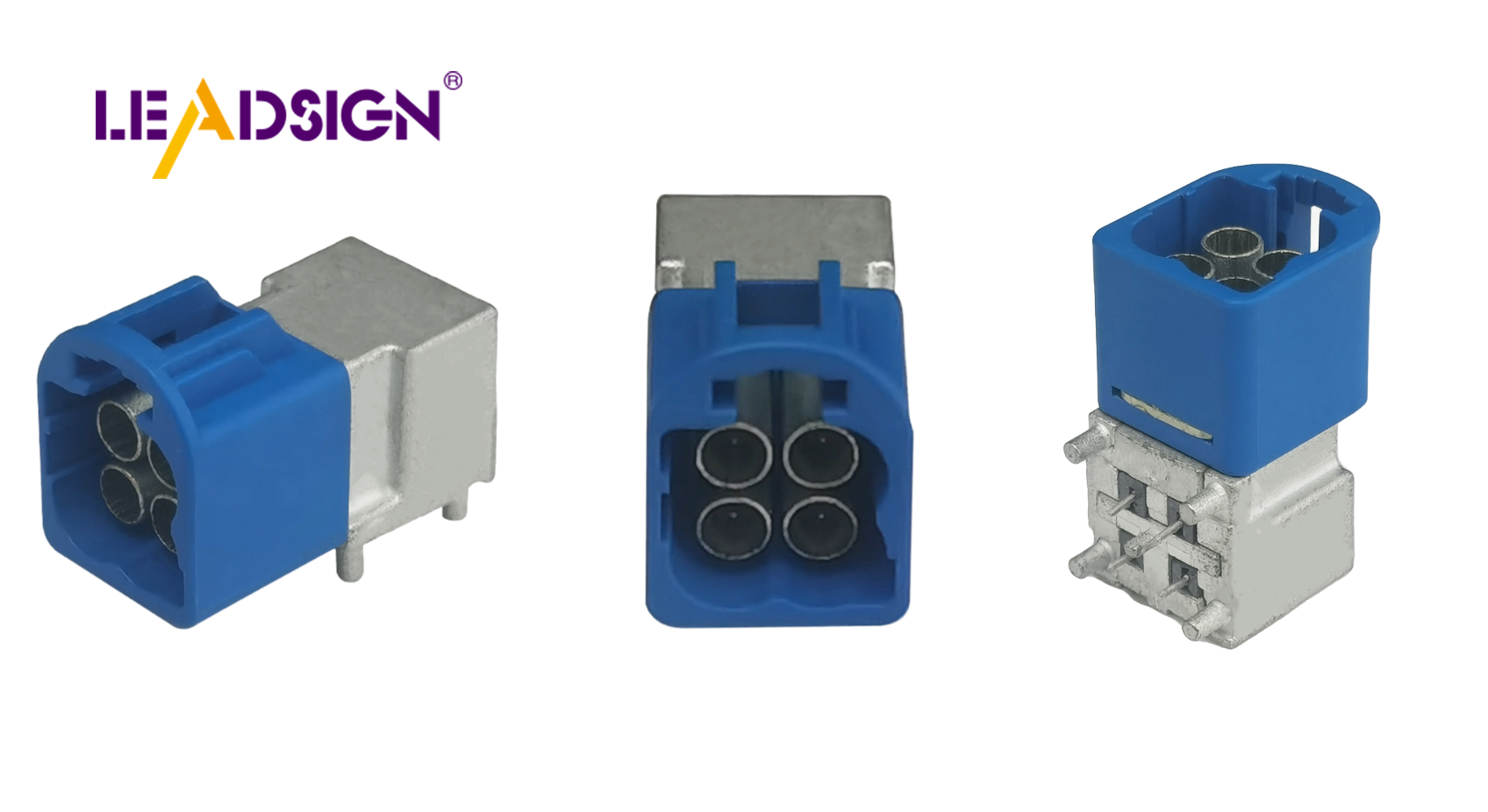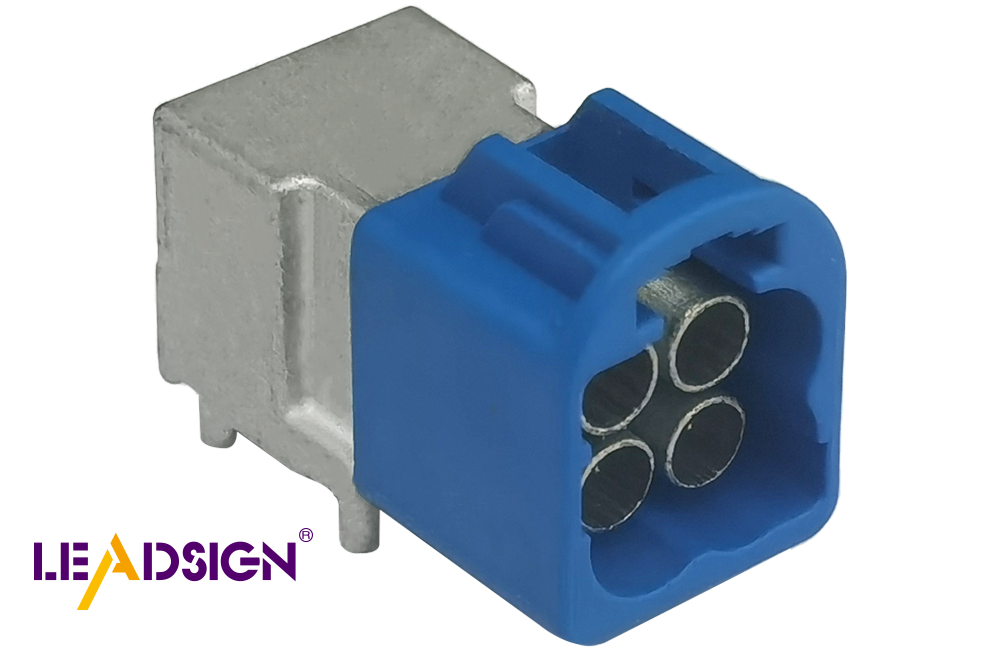How to Identify Different Automotive Wiring Connector Types

Understanding different automotive electrical connectors types is crucial for working on vehicles. Identifying and distinguishing various connectors can be challenging due to their diverse shapes, sizes, and colors. This diversity can complicate selecting the appropriate connector. This comprehensive guide aims to assist you in this endeavor. By familiarizing yourself with these connectors, you can ensure accurate connections and prevent issues. Let's delve into automotive electrical connectors types to streamline your tasks.
Basics of Automotive Wiring Connectors

What are Wiring Connectors?
Definition and Function
Wiring connectors help connect parts in a car's electrical system. They link circuits so electricity can move easily. Think of them as a handshake between wires, letting power flow from one part to another. These connectors have two parts: male (plug) and female (socket), which fit together tightly.
Importance in Automotive Systems
In cars, wiring connectors are very important. They let different electronic parts talk to each other. Without them, the car's wires would be messy and hard to fix. Connectors make it easy to unplug and plug back parts for repairs or upgrades.
Common Types of Connectors
Blade Connectors
Blade connectors are very common. They have a flat metal piece that fits into a slot. They're used for low-voltage things like speakers or lights because they're simple to use.
Pin Connectors
Pin connectors use pins to connect things. They come in different styles with various pin numbers for different needs. You might see them in engine controls or sensor systems where connections are more complex.
Bullet Connectors
Bullet connectors look like bullets and fit snugly into sockets. They're often used in car lights where secure connections matter for safety. Their design makes them easy to disconnect when needed.
High-Speed Data Connectors
High-Speed Data Connectors send fast data streams, like for cameras or USBs in cars. They have locks and strong cable grips for stable connections, crucial for modern cars' performance.
Knowing these connector types helps you understand your car's electrical system better. Whether fixing or upgrading, knowing the right connector makes work easier and faster.
Finding Different Automotive Electrical Connectors Types
Knowing how to find different automotive electrical connectors types makes car work easier. Let's learn some ways to spot these connectors well.
Looking at Connectors
Shape and Size
First, check the connector's shape and size. They can be round, flat, bullet, or square. Each shape has a job in the car's system. Round ones might be for sensors; flat ones could be for lights. Knowing these shapes helps you know what type it is.
Color Coding
Colors are useful clues too. Many connectors have colors showing their job or circuit type. A red one might mean power; green could mean ground. Watching these colors saves time and avoids mistakes when connecting wires.
Tools for Finding Connectors
Multimeter Use
A multimeter is great for finding connectors. It checks if a connector works right by testing continuity. Set it to continuity mode to see if current flows without stopping. This checks if the connection is good and finds bad connectors.
Connector Kits
Connector kits help too. They have tools and guides to match connectors with their types. These kits are helpful with tricky systems or new connectors. Using them ensures you pick the right connector, lowering mistake chances.
Practical Tips for Handling Connectors
Taking care of car connectors helps your vehicle work well. Here are some easy tips to keep them in good shape.
Best Practices for Connector Maintenance
Cleaning Techniques
Clean connectors are important. Dirt can mess up connections. Use a soft brush or air to clean them. For tough dirt, try a gentle cleaner or rubbing alcohol. Always dry them before use again. Regular cleaning stops dirt buildup and keeps connections strong.
Proper Storage
Store connectors right to make them last longer. Keep them dry and dust-free. Use labeled boxes to sort different types. This helps you find the right one fast when needed. Don't let connectors get too hot or wet, as this can harm them.
Troubleshooting Common Connector Issues
Loose Connections
Loose connections stop electricity flow. Check often to make sure they fit tight. If loose, tighten gently. Sometimes pins need adjusting too. A snug fit prevents problems and keeps your car running well.
Corrosion Problems
Corrosion happens often, especially in wet places. It makes bad connections and can ruin parts. Look for rust signs on connectors. Clean with corrosion remover or baking soda mix if needed. After cleaning, add a protective layer to stop more rust.
Using the correct connector is very important for cars, as studies say so too! Right connectors ensure smooth power flow and protect warranties from issues.
By following these tips, you keep your car's electrical parts working great! This saves time and money while keeping everything running smoothly.
You learned about car electrical connectors in this guide. You know their jobs and how to find them. Now, you can handle wiring tasks confidently. Identifying connectors correctly is very important. It stops signal problems and expensive fixes. Use what you learned in your projects. Keep your car's systems working well. Knowing the right connector makes strong connections and good performance. Stay curious and keep learning about car connectors. Your car will be happy!
See Also
Exploring HSD Connectors in Automotive Technology
Navigating Ford Fakra Connectors
Significance of Fakra Connectors in Today's Cars

